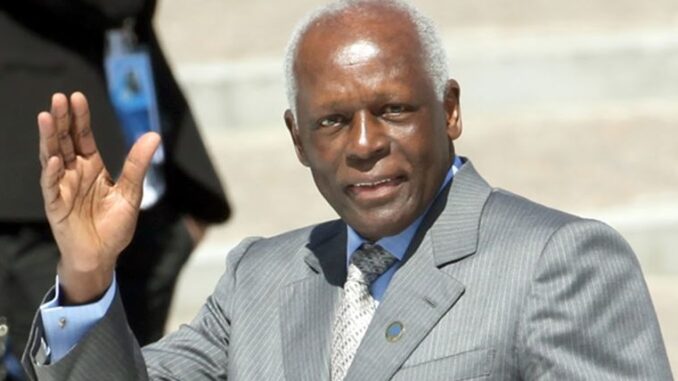
While the return of the body of former Angolan President José Eduardo dos Santos to his family was initially blocked, a Spanish court has ruled that the widow of the former Angolan President can finally recover his remains, in order to repatriate and bury them in the country. But this decision is already being contested, in the midst of an open family dispute.
The fate of the body of José Eduardo dos Santos, who died on 8 July in Barcelona, remains uncertain. The fate of the former head of state’s remains is at the centre of a legal battle between his widow, Ana Paula Cristovao dos Santos, and one of his daughters, Welwitschea “Tchizé” dos Santos, 44.
“Tchizé” dos Santos had initially succeeded in blocking the return of the body to the widow of the former president. A Spanish magistrate had decided to do so so that more analyses could be carried out, as requested by “Tchizé” dos Santos.
The latter had filed a complaint in Spain for “attempted homicide”, a few days after the death of Jos Eduardo dos Santos: she accused her father’s personal doctor and his last wife, Ana Paula Cristovao dos Santos, of being responsible for the deterioration of his health. She accused her father’s personal doctor and his last wife, Ana Paula Cristovao dos Santos, of being responsible for his deteriorating health.
However, in an order made public the High Court of Justice of Catalonia (TSJC) stated that it had received the results of the autopsy performed on the remains of José Eduardo dos Santos on the same day, and indicated that it had confirmed that it was a “natural death”, due to “chronic cardio-respiratory insufficiency”. As a result, the body of the former Angolan President could be handed over to his widow for repatriation and burial in Angola.
As soon as the TSJC’s decision was announced, her lawyer, Carmen Varela, stated in a press release that her client would appeal against the court’s decision, as the court that ruled on the case was not, in her opinion, competent to make a ruling.
